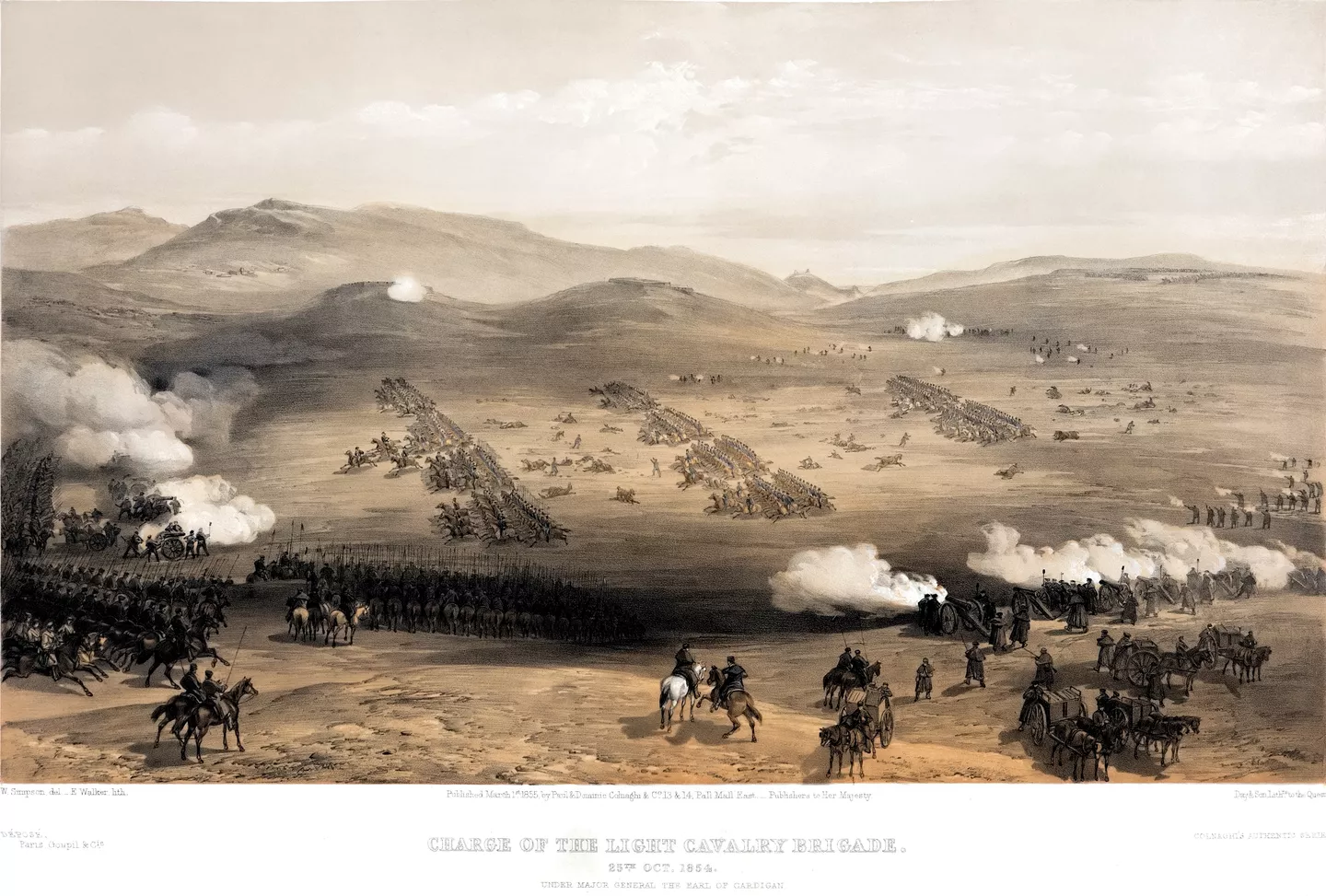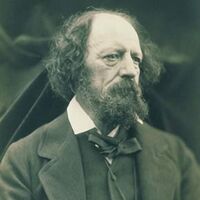
The Charge of the Light Brigade
Analysis
In The Charge of the Light Brigade, written in December of 1854, the Victorian poet Lord Alfred Tennyson describes the story of a brave brigade of six hundred soldiers who rode on horses to the valley of Death where they were brutally attacked. This poem commemorates an incident from the Crimean War, remarking the courage of the British soldiers (Hamilton). What I will do in this paper is to talk about the structure of the poem and its rhyme, to describe briefly its main points, and to comment on its historical context.
With respect to its structure, the poem contains six stanzas whose number of lines varies from six to twelve as we can see if we compare, for instance, the stanza IV with the VI. Its rhyme is mainly assonantic and does not follow a perfect pattern (see stanzas I and II), and its rhythm is dactylic which means that one syllable is stressed and the following two are unstressed (Artkras).
With regard to its content, the poem, as I said above, is about the story of a brigade that went to the valley of Death, riding on horses. The courageous soldiers followed obediently the orders of their commander who was not competent at all as the line 12 suggests that ‘Someone had blunder’s’.
When they arrived at the valley, they were suddenly assaulted from everywhere, and this dramatic circumstance is emphasized by the anaphora in the stanza III (lines 18-20). Next, we can see clearly a metaphor which refers to the risky situation of the soldiers (lines 23-25). They continued fighting until they decided to ‘ride back’. However, many of them died:Not the six hundred.’ (lines 35 and 36)
In the stanza V, the poet tells that the brigade was still being attacked by cannons and that many men and their horses died trying to escape from ‘the jaws of Death’ (lines 45-47). The last stanza starts with a rhetorical question, in which Tennyson suggests that the glory the soldiers won will last forever (line 50). The whole stanza praises the heroic act of the brigade.
From the historical point of view, Tennyson refers to a calamitous incident between Britain and Russia, during the Crimean War. According to the article of the BBC The Crimean War, this war started in 1853 when Russia sent troops to defend the Christians in the Ottoman Empire (Cable). As a consequence, the Turks declared war and Britain also fought against Russia to prevent the Russian expansion which put in danger important sea routes used by the British. Nowadays, this war is remembered by the British historians for the incompetence of the British generals in war strategies as Hamilton Beck suggests in his article The Crimean War, when he says that ‘One general was called an “old imbecil bully”, another a “nincompoop” and/ “shocking old dolt”, yet another a “terrible fool”’ (Beck). However, as we can observe, this current point of view differs from that of Tenysson, (though he recognizes in the line 12 the lack of skill of the commander) who preferred to remember the incident as a heroic act of the British soldiers who sacrificed themselves in the service to their country.


